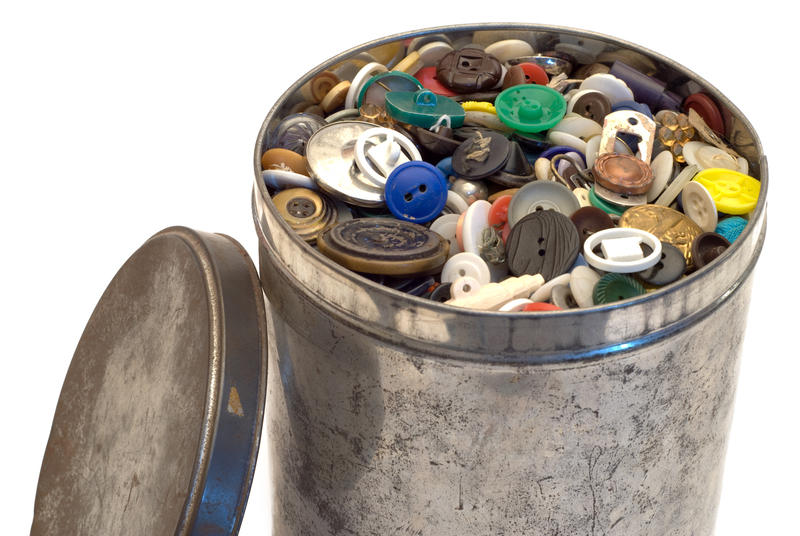In the rapidly evolving industrial landscape, reducing manufacturing waste has become a vital focus for companies worldwide. With environmental concerns and sustainability practices taking center stage, businesses are increasingly adopting innovative solutions to minimize waste and enhance operational efficiency. This article delves into some of these cutting-edge approaches that help in reducing industrial waste effectively.
Embracing Circular Economy in Manufacturing
The concept of a circular economy minimizes waste by keeping products and materials in use for as long as possible. Unlike the traditional linear model (take, make, dispose), a circular economy emphasizes renewable resources, product life extension, and recycling.
- Implementing remanufacturing processes: This involves refurbishing used products to meet or exceed original manufacturing standards.
- Encouraging recycling programs: Companies can establish in-house recycling centers to reprocess waste products into raw materials.
- Fostering product repair and reusability: Designing products that are easy to repair or upgrade can significantly reduce waste.

Advanced Manufacturing Technologies
Advanced technologies, such as the Internet of Things (IoT), 3D printing, and artificial intelligence (AI), are revolutionizing the way manufacturers operate, making processes more efficient and less wasteful.
Internet of Things (IoT)
IoT connects devices to streamline operations and minimize waste. By collecting and analyzing data in real-time, IoT allows manufacturers to:
- Monitor energy consumption to reduce excessive use and identify inefficiencies.
- Optimize equipment maintenance schedules, reducing downtime and unnecessary part replacements.
- Track and reduce material waste through smarter inventory management.
3D Printing
3D printing, or additive manufacturing, constructs objects layer by layer, significantly cutting down material waste compared to traditional subtractive methods. Benefits include:
- On-demand production, reducing surplus inventory and associated waste.
- Customization with minimal excess materials used.
- The ability to recycle printing materials in the production cycle.
Artificial Intelligence (AI)
AI applications in manufacturing are powerful tools for waste reduction:
- Enhancing predictive maintenance to preempt equipment failures and unnecessary waste production.
- Optimizing material usage by reducing errors and improving production precision.
- Facilitating more efficient logistics, thus lowering waste from packaging and transport.
Lean Manufacturing Principles
Lean manufacturing is a systematic method designed to minimize waste without sacrificing productivity. Key principles include:
- Just-in-Time (JIT) Production: Supplies are ordered and received only as needed, reducing inventory waste.
- 5S Methodology: Sort, set in order, shine, standardize, and sustain principles to maintain an organized and efficient workplace.
- Value Stream Mapping: Assessing and planning every stage of the production process to eliminate inefficiencies.
Green Supply Chain Management
Integrating sustainable practices into supply chain management is a critical approach to reducing manufacturing waste. By focusing on eco-friendly strategies, companies can optimize their entire production cycle:
- Choosing eco-friendly materials that decompose easily or can be recycled efficiently.
- Implementing practices for reverse logistics to manage returns and minimize waste generation.
- Partnering with suppliers committed to sustainable practices and waste reduction goals.
The Rise of Sustainable Materials
Manufacturing using sustainable materials is a forward-thinking approach to waste reduction. Materials such as biodegradable plastics, recycled metals, and plant-based composites are gaining traction for their environmental benefits.
- Using materials that are sustainably sourced and have a lower environmental footprint.
- Incorporating renewable resources to create products with extended lifecycles.
- Ensuring materials can be reintegrated into the production cycle.

Collaborative Approaches and Partnerships
Collaboration and strategic partnerships can open new avenues for waste reduction in manufacturing:
- Engaging in industry-wide collaborations to develop shared recycling facilities.
- Partnering with academic and research institutions to develop innovative waste management solutions.
- Collaborating with local governments to improve industrial waste policies and regulations.
Conclusion
Reducing manufacturing waste is no longer optional but a critical component of staying competitive and responsible in today's market. As companies increasingly adopt innovative strategies and leverage advanced technologies, they can not only reduce waste but also enhance efficiency and sustainability. The approaches highlighted in this guide underscore the importance of integrating waste reduction into every facet of the manufacturing process. With sustained efforts in innovation and collaboration, the goal of a zero-waste manufacturing industry is within reach.